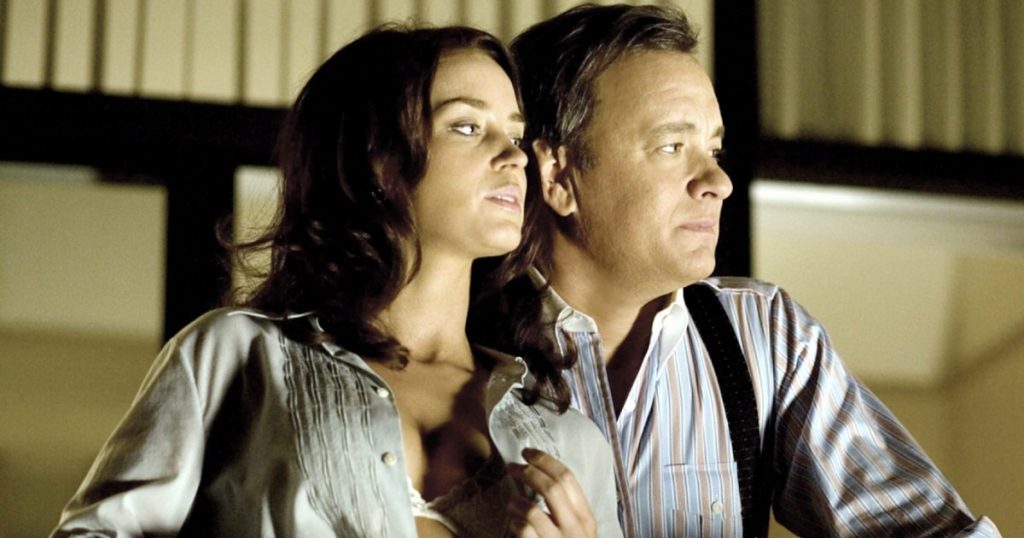Charlie Wilson’s War: A Last Chance to Watch a Historical Comedy Gem on Netflix
As August draws to a close, Netflix subscribers have just a few days left to catch “Charlie Wilson’s War” before it departs the platform on August 31. This unique 2007 film deserves a spot on your Labor Day weekend watchlist, offering a blend of comedy, history, and stellar performances that make it stand out from typical political biopics.
At its heart, “Charlie Wilson’s War” tells the fascinating true story of Operation Cyclone, a covert American operation aimed at supporting Afghan fighters against Soviet occupation in the 1980s. The film centers on an unlikely trio who became unexpected champions of this cause: hard-partying Texas Congressman Charlie Wilson (portrayed with charismatic flair by Tom Hanks), wealthy socialite and activist Joanne Herring (Julia Roberts), and gruff CIA operative Gust Avrakotos (Philip Seymour Hoffman). Their combined efforts ultimately led to one of the largest covert operations in history, channeling millions in funding to Afghan resistance fighters. What makes this story particularly intriguing is how little-known it remains despite its significant impact on global politics. Director Mike Nichols and screenwriter Aaron Sorkin bring this historical episode to life through a lens that’s both entertaining and enlightening, pulling back the curtain on the political maneuvering that occurred behind closed doors during a critical chapter of Cold War history.
What sets “Charlie Wilson’s War” apart from most historical dramas is its refreshing commitment to comedy. While many biopics might insert occasional moments of levity, this film embraces humor as a central element of its storytelling approach. Tom Hanks delivers a performance that showcases Wilson’s larger-than-life personality without reducing him to caricature – he’s charismatic, flawed, and deeply human. The film benefits tremendously from Aaron Sorkin’s screenplay, filled with his trademark rapid-fire dialogue and clever social commentary. Scenes move with a quick wit that keeps the audience engaged even as complex geopolitical issues are being discussed. This successful marriage of serious subject matter with genuine comedy creates a viewing experience that educates while it entertains, making potentially dry historical content accessible and engaging to audiences who might otherwise avoid political films.
Perhaps the most compelling aspect of “Charlie Wilson’s War” is its refreshingly honest portrayal of flawed protagonists. Charlie Wilson is presented as a congressman with a fondness for alcohol, drugs, and surrounding himself with beautiful women – hardly the typical hero of a political drama. Similarly, Joanne Herring and Gust Avrakotos come with their own set of complications and contradictions. What makes these characters work is the incredible performances behind them. Hanks brings warmth and dimension to Wilson, Roberts delivers a steely determination beneath Herring’s polished exterior, and Hoffman (in an Oscar-nominated role) creates in Avrakotos a character of surprising depth and pragmatism. Together, they form a compelling trio whose passion for their cause transcends their personal shortcomings. The film suggests that meaningful change often comes not from perfect people but from flawed individuals who find themselves in a position to make a difference – a message that feels both honest and ultimately hopeful about human potential.
What gives “Charlie Wilson’s War” its lasting impact is its willingness to acknowledge the complex, often unintended consequences of even well-intentioned actions. While the film celebrates the success of Operation Cyclone in helping to drive Soviet forces from Afghanistan, it doesn’t shy away from the troubling aftermath. In a sobering final act, the movie highlights Wilson’s unsuccessful attempts to secure funding for education and infrastructure in post-war Afghanistan – efforts that might have prevented the power vacuum that eventually enabled the rise of the Taliban. This nuanced approach to history avoids the simplistic “mission accomplished” narrative that many war films embrace. Instead, it leaves viewers with difficult questions about America’s responsibility in international conflicts and the long-term implications of short-term military objectives. The fact that a film this entertaining also manages to deliver such a thought-provoking message is a testament to the skill of everyone involved in its creation.
The collaboration of talent behind “Charlie Wilson’s War” represents a remarkable convergence of Hollywood excellence. Director Mike Nichols, known for classics like “The Graduate” and “Who’s Afraid of Virginia Woolf?”, brings his masterful touch to what would sadly become one of his final films. Aaron Sorkin’s screenplay showcases his gift for making political processes dramatically compelling and intellectually stimulating. And the cast – featuring three of the most respected actors of their generation in Hanks, Roberts, and Hoffman – elevates the material through performances that find the perfect balance between comedy and drama. The film received critical acclaim upon its release, with particular praise for Hoffman’s scene-stealing supporting role, which earned him an Academy Award nomination. Yet despite its pedigree, “Charlie Wilson’s War” has somewhat faded from public consciousness over the years, making this final opportunity to watch it on Netflix all the more valuable.
As we look back at “Charlie Wilson’s War” from our current vantage point, the film takes on additional layers of relevance. The complex legacy of American involvement in Afghanistan resonates differently now than it did upon the film’s 2007 release, especially following the United States’ withdrawal from the country in 2021. The movie’s warning about the dangers of incomplete engagement with nations in crisis feels prescient in ways that might not have been fully appreciated at the time. For viewers interested in understanding the historical roots of contemporary global challenges, “Charlie Wilson’s War” offers valuable context wrapped in an entertaining package. So before it leaves Netflix on August 31, carve out two hours for this intelligent, witty, and surprisingly moving film that combines star power with substance, humor with history, and entertainment with education – a rare combination that makes it well worth your time this Labor Day weekend.


